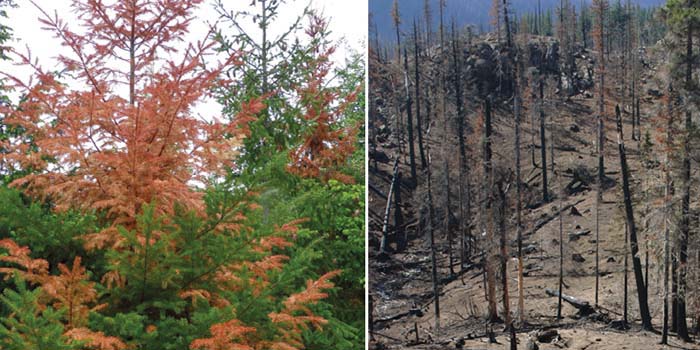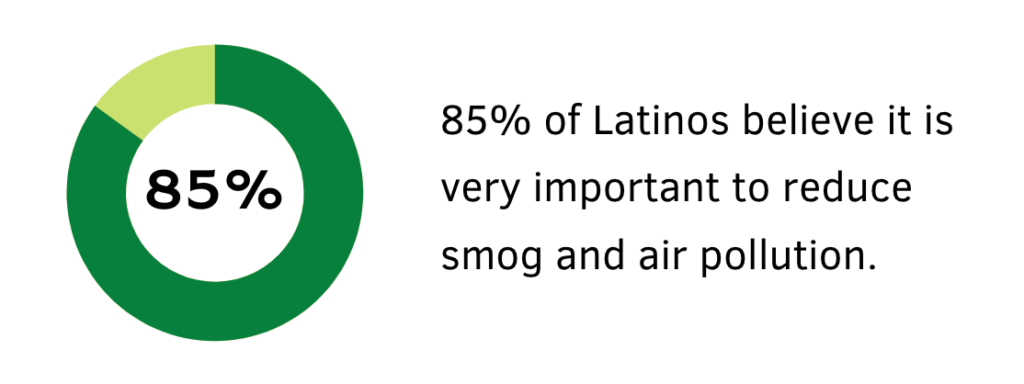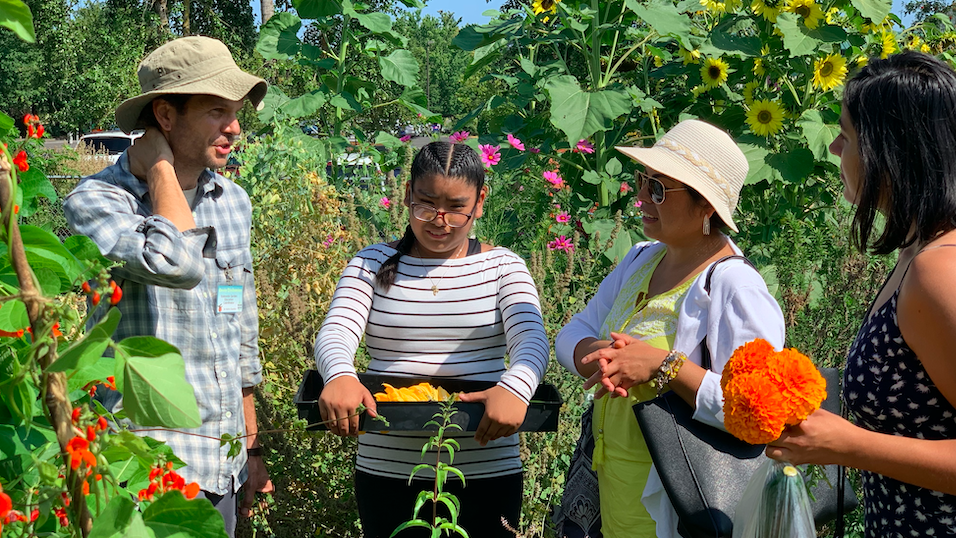What is climate change?
Climate change is the evident change in weather patterns in specific regions and local areas. This can mean more rain than usual in some areas, or heat waves in usually more mild regions, like the Pacific Northwest. These changes have been present in our planet for centuries, but today the variations are happening at a faster pace and more drastically due to human interventions like the growing use of energy and over extraction of natural resources.
Climate change, together with other natural and human-made health stressors, influences human health and disease in numerous ways. Some existing health threats will intensify and new health threats will emerge. Not everyone is equally at risk. Important considerations include race, age, economic resources, and location. (from CDC)
“I think climate change is the vital signs of the planet telling us that there is something wrong.”
María Delgado, summer 2021
In order to ensure that our communities are thriving and healthy, that they are safe, able to build a sense of belonging in Oregon, and that our dignity as families, individuals, and communities are at the forefront of any climate justice actions, we are focusing on the following issues intersecting climate change, racial and social justice, and health equity:
- Air quality
- Food access and equity
- Climate disaster preparedness
- Dignified and safe working and living condition


The legacy of inequitable public policies has and continues to put Latino/x/e and other vulnerable communities at greater risk of poor health, reduced access to housing, un- and under-employment, limited access to transportation options and parks, and higher mortality rates.
The Multnomah County Health Department has developed the Climate Vulnerability Indicators that identify factors which exacerbate the health risks. Vulnerable Latino/x/e community members are more likely to live in urban heat islands, have higher exposure to air pollutants, and are less likely to be able to afford equipment and services to protect them from climate impacts. Climate change health impacts show directly in increased asthma, chronic respiratory diseases, heart disease, diabetes, injuries and premature deaths related to extreme weather events, such as heat waves and snow storms.
“When we had the wildfires, I suffered a lot because I have asthma. I wasn’t able to leave my home a lot because the smoke would make my asthma really bad. I started to feel trapped in my own home and I felt like the smoke was getting inside of my house. I told my husband that I wanted and needed to leave because I couldn’t handle it anymore. I didn’t know what to do anymore, so I just started crying because I just couldn’t take it anymore”.
Rosalba Lavadores, summer 2021




